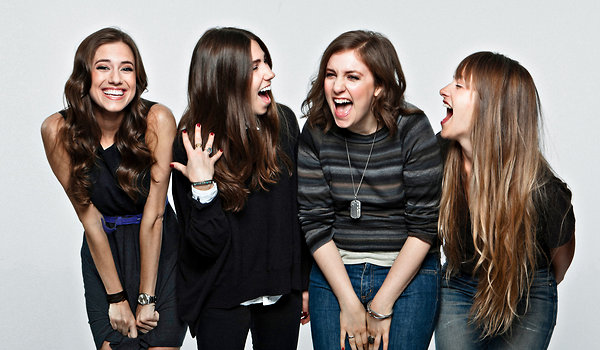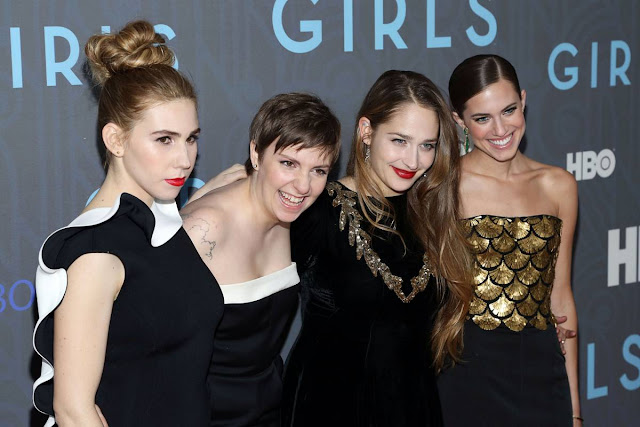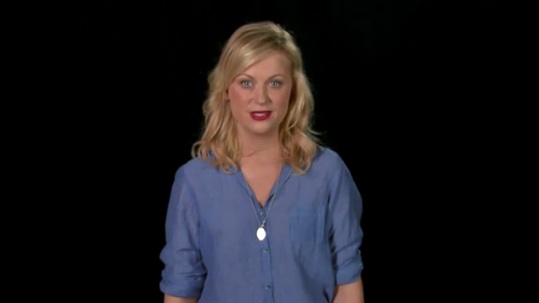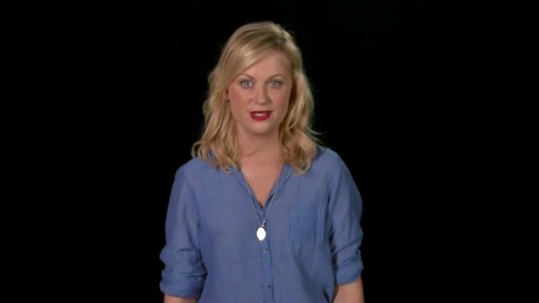Dear Lena Dunham Haters,
I’m sick of the Lena Dunham hate.
I’m not referring to the criticisms of Dunham, which are—in most cases—valid and necessary critiques of her privilege, especially how that privilege translates into her work. The first season of Girls in particular either ignored people of color entirely, which is problematic enough since the show takes place in Brooklyn (a predominantly Black neighborhood), but when it did include people of color, they tended to appear as stereotypes (nannies, homeless, etc), and Dunham absolutely deserves to be called out for that.
But I’m sick of the Lena Dunham hate.
Just take a moment and Google the phrase “I hate Lena Dunham.” Feel free to spend some time browsing through the more than a million results. Searches related to “I hate Lena Dunham” include such gems as “Lena Dunham annoying,” “how much does Lena Dunham weigh,” and “what size is Lena Dunham.”
We live in a society that constantly undervalues and
devalues the work of women while simultaneously expecting that the work we do—from mothering to
directing movies—is performed fucking flawlessly. That said, we can’t sit back and pretend the vitriol directed at Dunham isn’t largely about a young woman breaking barriers in an industry that doesn’t like women (especially women who aren’t conventionally attractive and who aren’t gasp! spending all their waking hours apologizing for it). We shouldn’t pretend either that we, as a culture—and that includes women and feminists—haven’t internalized a little bit of this uneasiness surrounding successful women. It makes sense, then, that the undercurrent bubbling beneath all this Dunham hate is the very sexist notion that somehow Dunham
doesn’t deserve her success.
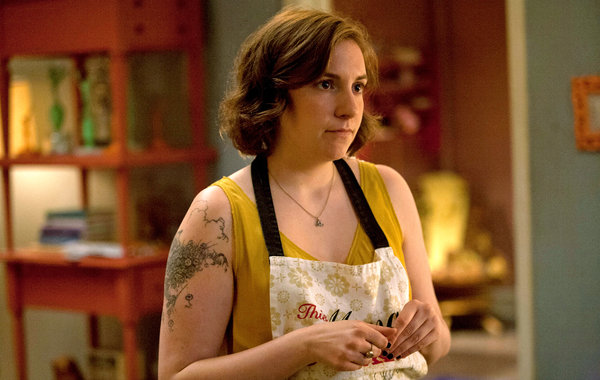 |
| Lena Dunham, looking all ungrateful for her unearned success |
On how Dunham doesn’t deserve the gigantic advance she got for her book deal:
I have yet to hear anyone react to the news of an advance with, “Yep, that seems about right.” It would be great if the writers and books that deserved the most money got it—ditto the same amount of attention and praise. And all the gripe-storming about how slight her book proposal was, and how she’ll never make back her advance—when did we start reviewing book proposals? When did writers start caring so passionately about publishers recouping their losses?
On how Dunham doesn’t deserve her success because she has inside Hollywood connections:
The entertainment industry is not a meritocracy. From before the days of Barrymore to our present age of Bacons and Bridges, Sheen-Estevezes and Zappas family has, for better and worse, equaled opportunity. The Coppola family’s connections and influence are so vast they’d make the mob envious.
On how Dunham doesn’t deserve her success because her show lacks diversity:
I hear the diversity criticism. However, to suggest that “Girls”—a show whose charm lies in part in its documentary-like feel—presents the universe these young women inhabit, working in publishing and the arts, as rich in racial diversity, would be, sadly, to lie. Besides, did anyone ever kvetch about Jerry Seinfeld’s lack of Asian friends?
To take the conversation surrounding non-progressiveness of television in general a bit further,
Carly Lewis wrote last April about the sexism behind the Dunham/
Girls backlash, and I agree with her:
It’s cute (read: pretty hypocritical, actually) to see this sudden spike in concern over television’s portrayal of women, but this fixation is propelled by the same sense of threatened dudeness that makes a show written by and about women so “controversial” in the first place. If television were an even playing field, Dunham would not be on the cover of New York magazine atop the subheading “Girls is the ballsiest show on TV,” nor would the debut of this series be such a massive deal. (Where are the cultural dissections of CSI: Miami?) The critics calling Girls disingenuous because it stars four white women should redirect their frustration toward misogyny itself, not at the one show trying to fight it.
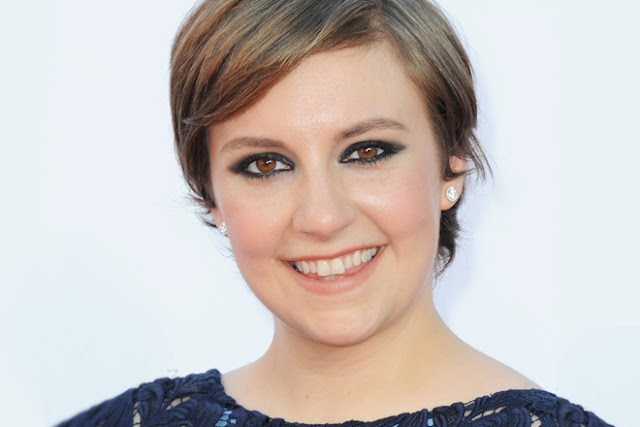 |
| Lena Dunham, probably getting ready to annoy people with her incessant whining |
Admittedly, I have a soft spot for Dunham, having written about her wonderful film Tiny Furniture way back in 2011, before she’d manage to offend the entire nation with her giant thighs and sloppy backside. I think she comes across as genuinely funny and interesting, and I hope that her success—and the hard hits she’s taking because of it—will make the next woman who dares to step out of line (where “line” means “the patriarchal framework”) do so with just as much fearlessness.
Girls continues to evolve in season two, although I haven’t seen the new episodes yet, and it seems that Dunham has taken the criticisms of racism and lack of diversity seriously. In response to the question from the
New York Times Magazine, “Should we expect to see an episode in which the girls get a black friend in Season 2?” she said:
I mean, it’s not going to be like, “Hey guys, we’ve been out looking for a black friend or a friend in a wheelchair or a friend with a hat.” The tough thing is you kind of can’t win on that one. I have to write people who feel honest but also push our cultural ball forward.
And people already have lots of opinions about Dunham’s attempt to accurately represent Brooklyn’s diversity in the second season with the casting of Donald Glover as Sandy, Hannah’s love interest, so I’ll treat you to a few.
Here’s what I think, after watching the first half hour of the season: I admire that Dunham took the criticism she got last year to heart. There are so many examples of how Hollywood ignores this type of thing. In fact, there are whole websites devoted to it. It really seems like she listened; I can’t tell from thirty minutes that everything has been solved, but it seems to be off to a good start? Lena Dunham isn’t so bad? Maybe? I say that with reservation but enthusiasm. Before I go, a couple thoughts on the good and the bad:
Good: I’ll start with positive reinforcement: Girls is definitely more diverse this season!
Bad: That definitely wasn’t the hardest thing to do.
Good: Donald Glover as Sandy! Hannah’s new, fleshed-out, not at all T-Doggy boyfriend.
Bad: I’m just hoping Donald Glover won’t simply be this show’s Charlie Wheeler.
Good: About the extras: A marked improvement in the representation of Brooklyn’s racial mix. So, Lena Dunham created a popular show, a critically acclaimed show, and instead of being, like, “Whatever. They’re all going to watch me anyway!” she actually made an effort to improve her show. That’s good. Very good. And to be honest, she probably realizes that a more realistic mix equals a more realistic world for her characters to live in.
Bad: Again, this is about the extras: There are definitely more black people on the show, but … I mean … I’ll put it this way. Realistic diversity is definitely not in your first season, girl. But it also not this. It’s definitely realistic here. But—it’s not this either, so don’t go overboard.
Dunham uses the Sandy plot line as an opportunity to skewer both the complaints of her critics—Hannah herself echoes them with the misguided assumption that her essays are “for everyone”—and her characters’ blinkered worldview. Glover’s arc on the show is brief, but he is key to illustrating the limited scope of Hannah’s experience. “This always happens,” Sandy tells Hannah during their fight. “I’m a white girl and I moved to New York and I’m having a great time and oh I’ve got a fixed gear bike and I’m gonna date a black guy and we’re gonna go to a dangerous part of town. All that bullshit. I’ve seen it happen. And then they can’t deal with who I am.” Hannah responds with an explosion of goofy knee-jerk progressivism: “You know what, honestly maybe you should think about the fact that you could be fetishizing me. Because how many white women have you dated? Maybe you think of us as one big white blobby mass with stupid ideas. So why don’t you lay this thing down, flip it, and reverse it.” “You just said a Missy Elliot lyric,” Sandy says wearily.
It is wholly unsubtle, but it is still “Girls” at its best, at once affectionate and credible and lightly parodic. There is Hannah: impulsive, oblivious, tangled up in her own sloppy self-justifications. And then there is Lena Dunham, the wary third eye hovering above the action. “The joke’s on you because you know what? I never thought about the fact that you were black once,” Hannah tells Sandy. “I don’t live in a world where there are divisions like this,” she says. His simple reply: “You do.”
Feministing, of course, has been talking about the show since its inception, and
Sesali Bowen had this to say about “Dunham’s attempt to introduce racial discourse into her show”:
And I find myself back at the same place I was when Maya and I talked about Beyonce. No, Dunham’s attempt to introduce racial discourse into her show doesn’t suddenly make it diverse, but I think she still deserves some credit. If it sounds like I’m saying: the white girl gets a pass for not painting an accurate portrait of Blackness because she doesn’t have lived context/experience, that’s exactly what I’m saying. Why do we expect “all or nothing” from anyone who dares to align themselves with a few feminist values, even if they don’t call themselves feminists? When will we begin the process of meeting people where they are?
And, as Samhita wrote on this topic, maybe we should spend less time “scrutinizing [Dunham’s] personal behavior instead of looking at the real problem—the lack of diverse representations of women in popular culture.” Do we need to see realistic representations of Black girlhood on television? Yes, that’s why we need more Black girls writing shows. *raises hand* Do we need examples of diversity in film? Yes, that’s why we need more people from diverse backgrounds writing them. Truthfully, I’d rather not leave that task up to a white girl with “no Black friends.”
I love these important conversations! Please, let’s keep having them!
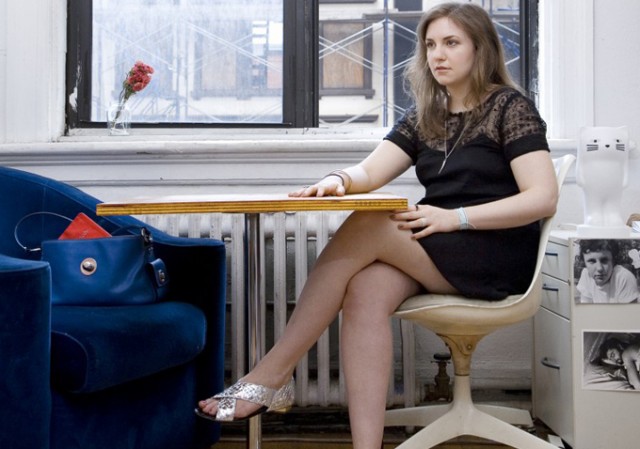 |
| Lena Dunham, being all entitled and shit |
When I was 26, I was spending my fifth year failing undergrad, drowning in student loan debt (that’s still happening), smoking pot incessantly, binge-eating pepperoni rolls, sleeping through most of my classes on a broken futon, and shoving dryer sheets in my heating vents because my shitty always-drunk neighbors wouldn’t stop chain smoking. Occasionally, out of nowhere, a giant fly would swoop down from some unseen cesspool where flies live and attack me. Those are my memories of being 26. Maybe your memories of being 26 suck way less, and if so, congratulations! But you’re allowed to make mistakes at 26. You’re allowed to learn from those mistakes and evolve into a person who looks back and thinks, “Wow, 26 was rough, and I sucked at it.” That’s a general goddamn life rule, and we aren’t taking it away from Lena Dunham just because she’s a young woman who dares to make her mistakes in public. (Read Jodie Foster’s thought-provoking essay on society’s
disgusting unsurprisingly misogynist reactions toward young women acting like young women in public.)
I mean, just to double check,
we’re all still cool with
Louis C.K., right? I haven’t yet seen season three of
Louie, that award-winning show that C.K. writes, directs, produces, edits, and stars in (sound familiar?), but I remember the first few episodes or so of this New York City-set critics’ darling being fairly fucking White, except for a few peripheral characters outside of Louie’s inner circle. And the Black people who do exist (at least in the first season) pretty much serve as vehicles to illustrate Louie’s uncoolness by comparison. (Has anyone given a name to that trope yet?) So, did I miss the accompanying INTERNET FREAKOUT, or does this bro maybe represent—I dunno—society’s favorite quintessential middle-aged, balding white dude who can’t get laid, that we all find so endearing and impossible not to love?
Did I also miss the 100% JUSTIFIED NOT REALLY BECAUSE IT NEVER HAPPENED OUTRAGE over C.K. exposing his huge gut and sloppy backside to the masses—whether he’s climbing on top of hot women (duh) or getting a totally unnecessary (because assault is funny!) rectal exam from doctor-character Ricky Gervais? And we’re all still cool with his awkward and embarrassing sex scenes, right? Because they’re just … so … what’s that word people keep railing against when it’s used to describe the sex scenes in Girls … oh yeah … “REAL” … ?
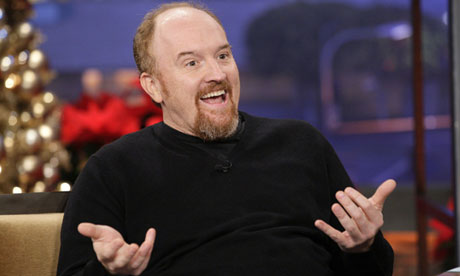 |
| “Eh, what are you gonna do?” –privileged White dudes everywhere, in response to rarely getting called out for their bullshit |
My bad. I’m probably missing something, since
Chuck Bowen called Louie “possibly the most racially integrated television show ever made,” (I’ll admit “Dentist/Tarese” is an interesting episode toward the end of season one) and there isn’t
at all an inkling of a double standard at play here regarding what we consider “acceptable” bodies to display onscreen. (Sidenote: I love, not really, how groundbreaking it is that C.K. cast a Black woman to play his ex-wife in season three of
Louie, yet we’re still treated to that “schlubby dude landing a hot lady” trope. I can’t keep suspending my disbelief forever, boys.)
Sorry, tangent. But seriously.
If I sound like a Lena Dunham apologist aka
“a fucking pig who can go to hell,” let me clarify (again): Lena Dunham should be—and certainly has been, I mean fuck—criticized for her show’s failings. Most television shows and films for that matter would benefit even from a
miniscule amount of the kind of intense anger flung at
Girls over its racism and lack of diversity. But I’m angry that people—including women and feminists—can’t seem to criticize Lena Dunham’s show without launching into sexist attacks against Lena Dunham, in the same way I was angry when people couldn’t (and still can’t) separate their criticisms of Sarah Palin’s conservative policies from their sexist attacks against Sarah Palin.
So, if nothing else, I give you these few words and phrases to move away from when talking about Lena Dunham: “whiny” … “annoying” … “ugly” … “gross” … “frumpy” … “hot mess” … “neurotic” … “slutty” … you get the idea.
 |
| NEPOTISM NARCISSISM LENA’S BODY UGH |
The truth is, ultimately, it doesn’t matter to me who likes
Girls and who doesn’t. For what it’s worth, I liked the first season, mainly because I’ve been writing about representations of women in film and television for five years, and it was nice for once to know I wouldn’t have to analyze every scene to figure out whether this show passed
The Bechdel Test. It sort of blew my mind to hear women talk to one another about abortion, HPV, colposcopies, virginity, and menopause, like, repeatedly—and with no unnecessary mansplainy perspective involved. I think the show actually makes a pretty serious case
against living like an entitled, culturally insulated hipster, while still managing to love its characters. But I understand, even excluding the criticisms regarding lack of diversity, that people still legitimately dislike the show for other reasons. That’s allowed. I hate
Two and a Half Men and
Family Guy and
The Big Bang Theory and
How I Met Your Mother and every other White-dominated show on television that keeps pretending women exist merely as fucktoys and mommies to their manchildren, and that’s allowed too.
But if you’re having an epic conniption over HOW HORRIBLE GIRLS IS OMG WHY DOES ANYONE LIKE IT LENA DUNHAM IS THE WORST, maybe it’s time to evaluate the hate—not dislike of, or boredom with, or ambivalence toward—but the actual hatred of Girls Lena Dunham, and why it’s really there.





